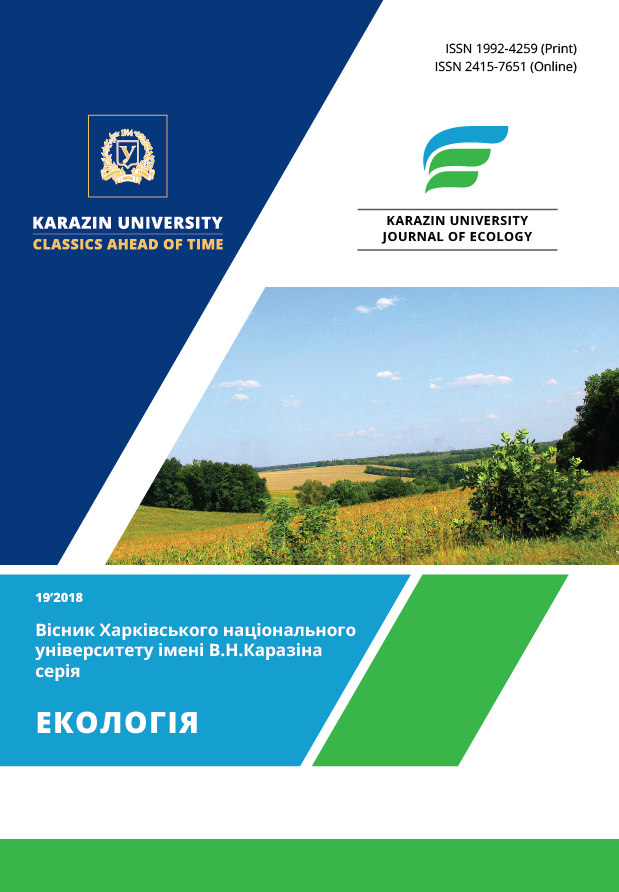Improving the Efficiency of Thermal Energy Use When Heating Buildings Through the Introduction of Technologies «Smart Home»
Abstract
Purpose. Investigation of the effectiveness of application in the heating systems of administrative, residential, industrial and other buildings of automated thermal management systems for premises using the «smart home» technology Methods. Analysis and synthesis of information, mathematical modeling of the heat supply process of a building, statistical data processing, a computational experiment to assess the effectiveness of the use of «smart home» technologies in heat supply systems. Results. A natural object was selected and investigated for the introduction of energy-saving technologies − a 3-storey fragment of the O.M. Beketov National University of Urban Economy in Kharkiv administrative building with a total heated area of 225,3 m2; investigated: structure, principle of operation, efficiency of the use of an automated control system for thermal conditions of the premises - HERZ Smart Comfort. Conclusions. The efficiency of using the HERZ Smart Comfort system was assessed according to the following criteria: the relative and absolute values of the decrease in thermal energy for heating a building - a natural object, the reduction in atmospheric emissions of carbon dioxide - CO2, and the economic efficiency from saving thermal energy.The heat loss calculation was performed at round-the-clock temperature in premises +18 ° C for average monthly outside air temperatures in Kharkov during the heating seasons 1981-2016. It has been established that the use of «smart home» technologies allows reducing the costs for heating a natural object during the heating season by 16.6%, which is 4709 kWh and leads to a reduction in CO2 emissions from the production of heat in the amount of 0.95 tons/year; The economic effect in this case is 6430 UAH.
Downloads
References
The Covenant of Mayors for Climate and Energy Reporting Guidelines / Covenant of Mayors & Mayors for climate and energy (2016). Adapt Offices and the Joint Research Centre of the European Commission, 78. [in English].
Kovalko, M., Denisyuk, S. (1998). Enerhozberezhennya – pryorytetnyj napryamok derzhavnoyi polityky Ukrayiny. [Mathematical modeling of heat transfer in the system of ecological diagnostics of diesel locomotive - diluting tunnel]. Energy saving is a priority right of the sovereign policy of Ukraine. Ukrainian encyclopedic knowledge, 512 [in Ukrainian].
Alibekova, A., Shaimerdenova, G., Agilbaeva, M. (2013). Ecolodica problems of thermal power plants. Journal of Industrial Technology and Engineering, 4(09), 40-44. [in English].
Varlamov, G., Didik, I. (2016). The main features of the implementation of the principle of environmental equilibrium on the ecological object. [Osnovni osoblyvosti realizaciyi pryncypu ekolohichnoyi rivnovahy na ekolohichnomu ob’yekti]. Young scientist: scientific journal,1, P.3, 104-107. [in Ukrainian].
Barannik, V, Zemliany, M. (2004). Energy saving is a priority direction of energy policy and enhancement of Ukraine's energy security. [Enerhozberezhennya – priorytetnyj napryam enerhetychnoyi polityky ta pidvyshhennya enerhetychnoyi bezpeky Ukrayiny]. Collection. scientific works of the International Scientific and Practical Conference «Energy Efficiency – 2004», 97-108. [in Ukrainian].
Maiarenko, V., Sherbak, I. (2013). Analysis of consumption of fuel and energy resources of Ukraine and their rational use. [Analiz spozhyvannya palyvno-enerhetychnyx resursiv Ukrayiny ta yix racional"noho vy-korystannya]. Bulletin of the NTU «KhPI». Series: Power and heat engineering processes and equipment, 14(988), 118-126. [in Ukrainian].
Isachenko, V., Osipova, V., Sukomel, A. (1975). Heat transfer: textbook for universities. [Teploperedacha: uchebnik dlja vuzov]. Energy, 488 [in Russian].
Kirillini, V., Sychev, V., Sheindlin, A. (1979). Technical thermodynamics: monograph. [Tehnicheskaja termodinamika: monografija]. Science, 512. [in Russian].
Nikitin, E., Tarnovskiy, M., Cherniavskiy, A. (2014). Manual on Municipal Energy Management. [Posibnyk z municypal"noho enerhetychnoho menedzhmentu]. Polygraph plus, 238. [in Ukrainian].
Taryfy na teplovu enerhiyu dlya byudzhetnyx ustanov, inshyx spozhyvachiv (krim naselennya) i relihijnyx orhanizacij. (2018). KP «Xarkivs`ki teplovi merezhi» [Tariffs for heat energy for budget institutions, other consumers (except for population) and religious organizations. Communal Enterprise «Kharkiv heat networks»]. . Available at : http://www.hts.kharkov.ua/KPHTS_v2_public_info_tarify.php. [in Ukrainian].
Authors who publish with this journal agree to the following terms:
- Authors retain copyright and grant the journal right of first publication of this work under the terms of a license Creative Commons Attribution License 4.0 International (CC BY 4.0).
- Authors are able to enter into separate, additional contractual arrangements for the non-exclusive distribution of the journal's published version of the work (e.g., post it to an institutional repository or publish it in a book), with an acknowledgement of its initial publication in this journal.
- Authors are permitted and encouraged to post their work online (e.g., in institutional repositories or on their website) prior to and during the submission process, as it can lead to productive exchanges, as well as earlier and greater citation of published work.





